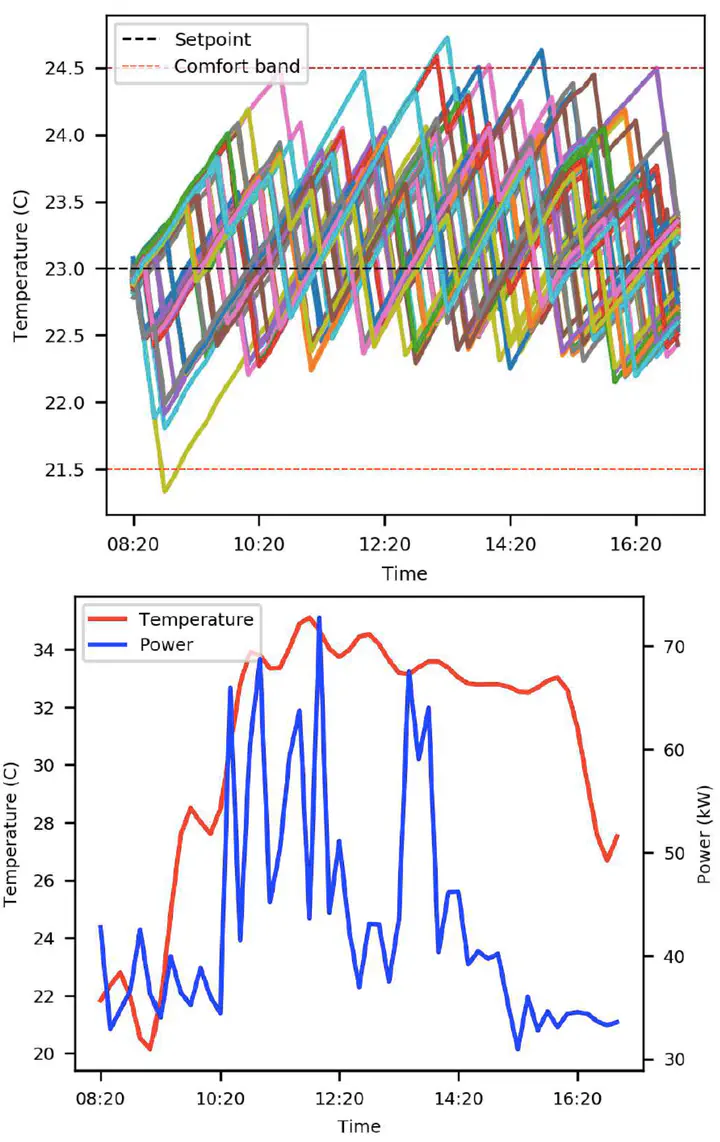
Abstract
Use of renewable energy resources can play a significant role in mitigation of climate change since they reduce the dependency on fossil fuels. However, high penetration of renewable energy resources into the power grid may cause some reliability problems. Ancillary services are key to realize the potential of renewable resources without disturbing the grid reliability. In recent years, many control approaches focused on exploiting the aggregate flexible heating, ventilation, and air-conditioning (HVAC) loads of buildings. However, there are still research gaps in assessing in advance the resulting indoor temperature responses for given total power and weather profiles before implementing the controls in the buildings. Such an assessment is critical to guarantee satisfying both the grid related objective (reliability) and the building related objective (occupants’ comfort). Towards addressing this research gap, this paper presents a machine-learning approach for predicting the ratings of indoor temperature responses. In this approach, a prediction model was developed using a dataset generated by a set of model-free control simulations. The developed model achieved high prediction accuracy and showed the potential of the proposed approach.
I worked on this project in summer 2019, while I was an intern under Dr. Mohammed Olama at Oak Ridge National Laboratory in Oak Ridge, TN.